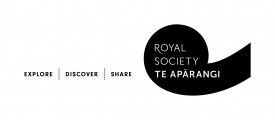Geoscience Society of New Zealand Code of Ethics
The GSNZ is one of a number of Constituent Organisation Members of the Royal Society of New Zealand (RSNZ), which help the RSNZ identify and address issues relevant to the research, knowledge and innovation sectors, and link into the research information and activities that the RSNZ undertakes.
Constituent Organisations are required to adhere to the RSNZ Code of Professional Standards and Ethics.
In addition, GSNZ also has its own Code of Ethics
1. General Principles:
1.1: The practice of the geosciences requires professional morality, responsibility, and knowledge on the part of the practitioner.
1.2: Every member of the Society shall be guided by the highest standards of ethics, personal honour, and professional conduct; and shall not claim to be competent in fields in which his or her experience or training is inadequate.
2. Relation of Members to the Public:
2.1: A member's responsibility to the public shall be paramount, and he or she shall avoid and discourage sensational, exaggerated and unwarranted statements.
2.2: A member shall not knowingly permit the publication of his or her reports, maps, or other documents, for any unsound or illegitimate undertaking.
2.3: A member having or expecting to have beneficial interest in a property, company, licence or patent on which he or she reports must state in his or her report the existence of such.
2.4: A member shall not give a professional opinion, write papers or reports, or give legal testimony, without being as thoroughly informed as might reasonably be expected, considering the purpose for which the opinion, paper, report or testimony is desired; and the degree of completeness of information upon which it is based should be made clear.
2.5: A member shall, in the course of his or her field or laboratory work, take reasonable steps to safeguard the health and safety of people.
2.6: A member shall not issue a false statement or false information even though directed to do so by employer or client.
2.7: A member shall have regard to the effect of his or her activities on the natural environment, communities and cultures.
3. Relation of Members to Employer or Client:
3.1: A member shall protect, to the fullest extent possible, the interest of his or her employer or client so far as is consistent with the public welfare and his or her professional obligations and ethics.
3.2: A member who finds that his or her obligations to his or her employer or client conflict with his or her professional obligations or ethics shall endeavour to have such objectionable conditions corrected.
3.3: A member shall offer to disclose to his or her prospective employer or client the existence of any mineral or other interest which he or she holds, either directly or indirectly, having a pertinent bearing on such employment.
3.4: A member shall not use, directly or indirectly, any employer's or client's confidential information in any way that is competitive, adverse or detrimental to the interest of employer or client.
3.5: A member retained by one client shall not accept, without that client's written consent, an engagement by another if the interests of the two are in any manner conflicting.
3.6: A member who has made an investigation for any employer or client shall not seek to profit economically from the information gained, unless written permission to do so is granted, or until it is clear that there can no longer be conflict of interest with the original employer or client.
3.7: A member shall not divulge information given him or her in confidence.
3.8: A member shall engage, or advise his or her employer or client to engage, and co-operate with, other experts and specialists whenever the employer's or client's interests would be best served by such service.
3.9: A member shall not accept a concealed fee for referring a client or employer to a specialist or for recommending geological services other than his or her own.
4. Relation of Members to Other Scientists:
4.1: A member shall not falsely or maliciously attempt to injure the reputation or activities of another scientist.
4.2: A member shall freely give credit for work done by others to whom the credit is due and shall refrain from plagiarism in oral and written communications, and not knowingly accept credit rightfully due to another scientist.
4.3: A member shall endeavour to co-operate with others in the profession and encourage the ethical dissemination of scientific knowledge.
4.4: A member having knowledge of unethical practices of another scientist shall avoid association with that scientist in professional work.
Ethics last amended April 2020.
